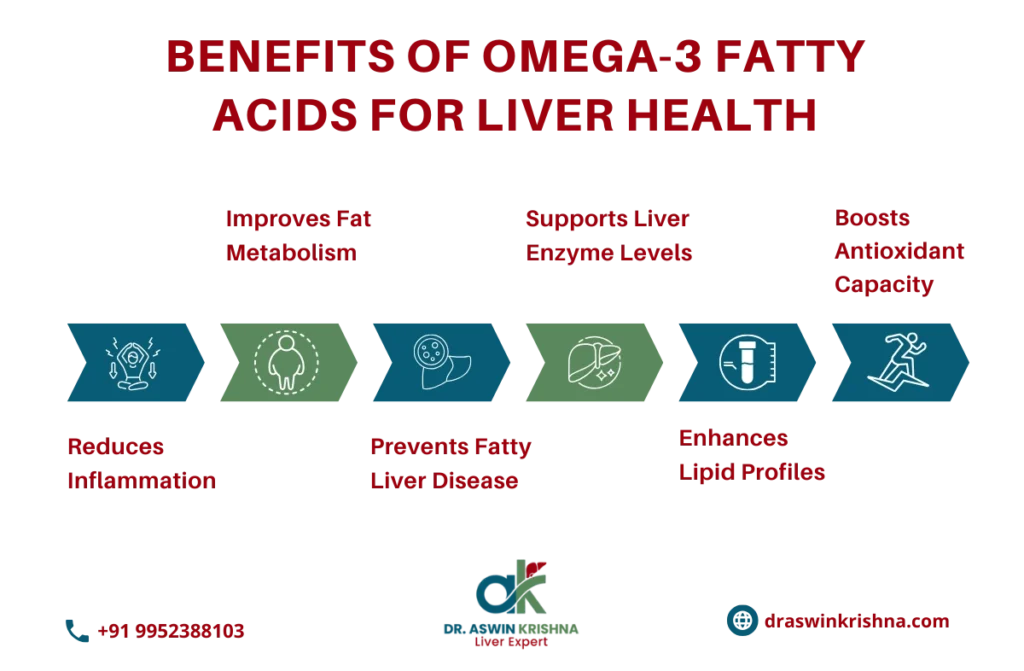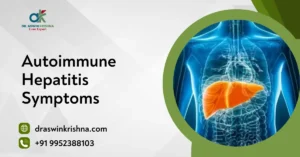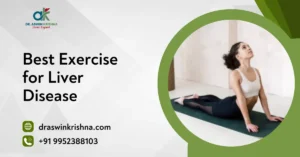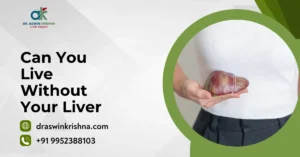The liver plays a vital role in detoxifying your body, processing nutrients, and producing essential proteins. To keep it functioning optimally, you need to consume the best nutrients for liver health. These nutrients help protect the liver from damage, support its detoxification processes, and maintain overall liver function. In this blog, we’ll explore the best nutrients for liver health, the foods that can improve liver function, and how liver supplements can help enhance liver health. By incorporating these nutrients into your daily routine, you can keep your liver in top shape and prevent potential liver issues.
What is the Best Nutrient for the Liver?
The liver thrives on a variety of nutrients, with some being more important than others when it comes to its health. Among the best nutrients for liver health, Vitamin E, Vitamin C, B Vitamins (B6, B12, Folate), Omega-3 fatty acids, and antioxidants like selenium and polyphenols are essential. In addition to eating liver-friendly foods, liver supplements can also help fill in nutritional gaps to promote better liver health. A balanced diet rich in these nutrients supports the liver’s detoxifying functions and can reduce inflammation and oxidative stress.
10 Best Nutrients for Liver Health
Vitamin E: A Powerful Antioxidant
Vitamin E is one of the best nutrients for liver health because of its powerful antioxidant properties. It helps protect liver cells from oxidative stress and inflammation, which can damage liver tissue. Many studies have shown that vitamin E supplementation can improve liver function, especially in people with fatty liver disease. You can find Vitamin E in foods like almonds, sunflower seeds, and leafy green vegetables. It’s also available in liver supplements, offering an additional way to get this essential nutrient for liver health.

Vitamin C: A Vital Liver Supporter
Vitamin C, the best nutrients for liver health and the body, is another key player when it comes to liver health. As an antioxidant, it helps to neutralize free radicals, reduce inflammation, and improve detoxification processes. Vitamin C also supports the immune system, which is critical for liver function. Sources of Vitamin C include citrus fruits, strawberries, bell peppers, and broccoli. Liver supplements containing Vitamin C can also help maintain optimal liver function by providing the necessary support to combat oxidative stress.
B Vitamins (B6, B12, and Folate): Vital for Liver Detox
B Vitamins, particularly B6, B12, and Folate, are critical for maintaining the best nutrients for liver health. They are involved in the production of energy, the detoxification process, and the regulation of homocysteine levels, which can affect liver function. Deficiencies in these liver friendly vitamins can lead to liver damage and poor detoxification. Foods rich in B Vitamins include whole grains, eggs, fish, and green vegetables. Liver supplements with B Vitamins are also widely available to support liver health, especially for people with poor dietary intake.
Omega-3 Fatty Acids: Essential Fats for Liver Health
Omega-3 fatty acids play a crucial role in liver health by reducing inflammation, improving fat metabolism, and supporting overall liver function. These healthy fats can help reduce the risk of fatty liver disease and improve liver function in individuals already affected. Omega-3s are found in fatty fish such as salmon, mackerel, and sardines, as well as in flaxseeds and walnuts. Consuming these foods or taking Omega-3 supplements can provide your liver with the support it needs to stay healthy.
Choline: An Essential Nutrient for Fat Metabolism
Choline is the best nutrients for liver health that supports fat metabolism in the liver. It helps prevent the accumulation of fat in liver cells, reducing the risk of fatty liver disease. Choline is vital for producing phosphatidylcholine, a major component of cell membranes. Foods rich in choline include eggs, liver, and soybeans. Choline supplements can also be beneficial in supporting liver health, particularly for individuals who don’t consume enough choline-rich foods.
Glutathione: A Detoxifying Antioxidant
Glutathione is often called the body’s “master antioxidant.” It is critical for the detoxification processes in the liver and helps neutralize harmful toxins. Glutathione also protects liver cells from oxidative damage and promotes overall liver function. This powerful antioxidant is found in liver-friendly foods such as garlic, onions, and cruciferous vegetables like broccoli. Glutathione supplements are also available to help boost liver function and detoxification, especially for people suffering from liver conditions.
Selenium: A Trace Mineral for Liver Health
Selenium is a trace mineral that plays a key role in protecting the liver from oxidative stress. It is an essential component of enzymes that help detoxify harmful substances in the liver. Selenium also supports the immune system and helps in the repair of liver tissue. Foods rich in selenium include Brazil nuts, seafood, and whole grains. Selenium supplements can be used to enhance liver function, especially for people with low levels of this mineral.
Zinc: A Mineral That Supports Liver Function
Zinc is essential for many biological processes, including enzyme function, DNA synthesis, and protein metabolism. It plays an important role in liver health by helping to maintain the integrity of liver cells and aiding in the detoxification process. Zinc deficiency can lead to liver damage and inflammation. Foods such as red meat, shellfish, beans, and nuts are rich in zinc. Zinc supplements are also available and can be beneficial for people with poor zinc intake.
Polyphenols: Antioxidants for Liver Protection
Polyphenols are plant-based compounds with strong antioxidant properties. They help protect the liver from oxidative damage, reduce inflammation, and support detoxification processes. Foods high in polyphenols include berries, green tea, dark chocolate, and certain fruits and vegetables. Polyphenol-rich liver supplements can also help boost liver health by providing additional antioxidants to fight liver inflammation and damage.
Fiber: A Crucial Nutrient for Liver Health
Fiber is important for liver health because it helps regulate digestion and prevent fat buildup in the liver. It also helps reduce inflammation and supports overall detoxification. Foods rich in fiber include whole grains, fruits, vegetables, and legumes. Consuming a fiber-rich diet or taking fiber supplements can aid in liver detoxification and help prevent fatty liver disease.
What Makes Food Good for Your Liver?
Foods that are good for the liver are those that provide the best nutrients for liver health, antioxidants, and anti-inflammatory properties. These foods support liver detoxification, reduce oxidative stress, and help prevent fat accumulation in liver cells. Liver-friendly foods include fruits, vegetables, whole grains, lean proteins, and healthy fats. Regularly including these foods in your diet can support liver health, improve liver function, and help protect the liver from damage.
Why Are Vitamins Essential for Liver?
Vitamins and minerals for liver health play a crucial role in maintaining liver function, reducing inflammation, and preventing liver diseases. Certain vitamins help in neutralizing toxins, enhancing bile production, and repairing liver cells. Below are some key of the best nutrients for liver health:
- Vitamin A – Supports liver detoxification and protects against oxidative stress. However, excessive intake can be harmful, so balance is key.
- Vitamin B Complex – B vitamins, including B12, B6, and folate, help with energy production and liver detoxification.
- Vitamin C – Acts as an antioxidant, reducing oxidative stress and inflammation in the liver.
- Vitamin D – Deficiency of vitamin D is linked to liver diseases such as fatty liver and cirrhosis.
- Vitamin E – Helps protect liver cells from damage and supports overall liver function.
- Zinc and Magnesium – Essential minerals that aid in liver enzyme function and detoxification.
Are You Ready to Level Up Your Liver Game?
If you’re looking to enhance your liver health, incorporating the right vitamin needed for liver is essential. Many factors, including an unhealthy diet, excessive alcohol consumption, and poor lifestyle choices, can impact liver function. But the good news is that with the right nutrients, you can support and improve liver health.
Simple steps to level up your liver game:
- Eat a balanced diet rich in liver friendly vitamins like leafy greens, nuts, and fruits.
- Stay hydrated and avoid processed foods that burden the liver.
- Engage in regular physical activity to maintain overall wellness.
- Consider taking supplements if you have vitamin deficiencies.
How to Amp Up Liver Health with Vitamins?
To optimize your liver function, incorporating vitamins and minerals for liver health into your daily routine is a must. Here’s how you can do it:
- Dietary Choices: Include foods rich in liver friendly vitamins such as fatty fish (for vitamin D), citrus fruits (for vitamin C), and whole grains (for B vitamins).
- Herbal Support: Natural supplements like milk thistle and turmeric are excellent for liver detox and repair.
- Hydration: Drinking sufficient water helps in flushing toxins and keeping your liver healthy.
- Regular Checkups: Monitor liver health through medical tests and seek professional advice on necessary vitamin intake.
By making mindful choices and ensuring the intake of the right vitamin needed for liver, you can support liver function and overall well-being. Start taking care of your liver today and experience long-term health benefits!
Conclusion
Incorporating the best nutrients for liver health into your daily diet is crucial for maintaining optimal liver function. Whether through liver-friendly foods or liver supplements, a balanced intake of Vitamin E, and C, Omega-3 fatty acids, B Vitamins, and other essential nutrients helps protect the liver from damage and supports its detoxification processes. By making smart food choices and considering supplements when necessary, you can keep your liver healthy and functioning at its best.
Read also Best Herbs For Fatty Liver.



